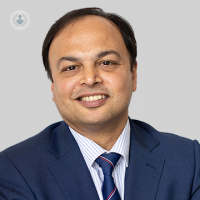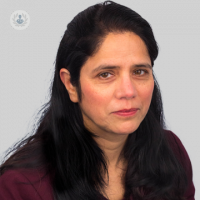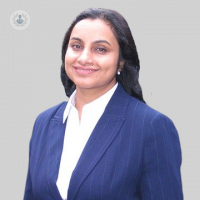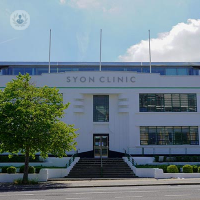What are fertility treatments?
Fertility treatments are typically given by a fertility specialist or fertility doctor, often an obstetrician/gynaecologist specialising in the issues and treatment surrounding infertility. The sub-specialty is often referred to as 'reproductive medicine', dealing with the prevention, diagnosis and management of reproductive problems.

What conditions does a fertility specialist treat?
Fertility specialists consult for and are able to diagnose all manner of conditions surrounding infertility and related problems. These specialists may consult for both male and female infertility, making an initial assessment either for an individual or a couple. Fertility specialists typically use three main methods of treatment for fertility issues, these being:
- medication;
- surgical procedures, and;
- assisted conception.
Depending on the treatment, fertility specialists may refer to other specialists, such as surgeons or endocrinologists.
Surgical procedures may be used for conditions such as:
- endometriosis (where the womb lining grows outside the womb);
- fibroids, and;
- polycystic ovary syndrome (PCOS).
In men, surgery may be used to correct epididymal blockages, and retrieve sperm.
Fertility medication is more commonly issued to women in order to help with ovulation issues. However, medication may be issued in some cases of male infertility or related problems.
Many people visit fertility specialists for assisted conception, typically through IVF (in vitro fertilisation), IUI (intrauterine insemination), or egg/sperm donation.

When should you see a fertility specialist for fertility treatments?
There are many reasons to visit a fertility specialist. For women under 35, visiting a fertility specialist is recommended when pregnancy has not been achieved after one year of unprotected intercourse. Women 35 and older are recommended to visit a fertility specialist after six months of trying.
Other reasons for having fertility treatments include:
- irregular menstrual cycles
- wishing to delay conception
- being diagnosed with cancer during fertile years and wishing to conserve eggs
In those with a thyroid condition, or who are overweight, or have a known reproductive issue such as PCOS, visiting a fertility specialist is advised before trying to get pregnant. In addition, some may wish to visit a fertility specialist and consult for the following reasons:
- Pelvic inflammatory disease
- Having had an STI
- Multiple miscarriages or a history of miscarriage
- Having had abdominal or pelvic surgery
- Absence of periods
- Painful periods
- Issues with erectile dysfunction
- Problems ejaculating
- Sustaining an injury to the genitals or groin
- A lump or swelling in the testicles (varicocele)
Fertility treatments
Mr Parijat Bhattacharjee - Fertility specialist
Created on: 07-31-2014
Updated on: 09-25-2023
Edited by: Karolyn Judge
What are fertility treatments?
Fertility treatments are typically given by a fertility specialist or fertility doctor, often an obstetrician/gynaecologist specialising in the issues and treatment surrounding infertility. The sub-specialty is often referred to as 'reproductive medicine', dealing with the prevention, diagnosis and management of reproductive problems.

What conditions does a fertility specialist treat?
Fertility specialists consult for and are able to diagnose all manner of conditions surrounding infertility and related problems. These specialists may consult for both male and female infertility, making an initial assessment either for an individual or a couple. Fertility specialists typically use three main methods of treatment for fertility issues, these being:
- medication;
- surgical procedures, and;
- assisted conception.
Depending on the treatment, fertility specialists may refer to other specialists, such as surgeons or endocrinologists.
Surgical procedures may be used for conditions such as:
- endometriosis (where the womb lining grows outside the womb);
- fibroids, and;
- polycystic ovary syndrome (PCOS).
In men, surgery may be used to correct epididymal blockages, and retrieve sperm.
Fertility medication is more commonly issued to women in order to help with ovulation issues. However, medication may be issued in some cases of male infertility or related problems.
Many people visit fertility specialists for assisted conception, typically through IVF (in vitro fertilisation), IUI (intrauterine insemination), or egg/sperm donation.

When should you see a fertility specialist for fertility treatments?
There are many reasons to visit a fertility specialist. For women under 35, visiting a fertility specialist is recommended when pregnancy has not been achieved after one year of unprotected intercourse. Women 35 and older are recommended to visit a fertility specialist after six months of trying.
Other reasons for having fertility treatments include:
- irregular menstrual cycles
- wishing to delay conception
- being diagnosed with cancer during fertile years and wishing to conserve eggs
In those with a thyroid condition, or who are overweight, or have a known reproductive issue such as PCOS, visiting a fertility specialist is advised before trying to get pregnant. In addition, some may wish to visit a fertility specialist and consult for the following reasons:
- Pelvic inflammatory disease
- Having had an STI
- Multiple miscarriages or a history of miscarriage
- Having had abdominal or pelvic surgery
- Absence of periods
- Painful periods
- Issues with erectile dysfunction
- Problems ejaculating
- Sustaining an injury to the genitals or groin
- A lump or swelling in the testicles (varicocele)


Understanding AMH: Exploring its impact on female fertility
By Dr Anu Chawla
2024-11-21
When embarking on the journey to parenthood, the world of fertility can seem like a labyrinth of perplexing terminology. What exactly is LH? What does AMH mean? Well, Anti-Mullerian Hormone (AMH) is a critical concept you should grasp. This essential hormone plays a pivotal role in the process of conceiving a child, and if you're facing challenges in becoming pregnant or you're over 25, it's wise to have your AMH levels assessed. In her latest online article, Dr Anu Chawla demystifies AMH and explores its influence on fertility. See more
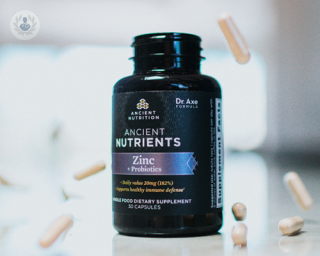

Fertility, IVF and the microbiome - Part 2
By Mr Stuart Lavery
2024-11-21
In part two of reproductive specialist Mr Stuart Lavery's fertility series, he goes into further detail about conceiving, looking specifically at diet, supplements and the role of the microbiome. See more


What is adenomyosis, and how can it be managed?
By Mr Mahantesh Karoshi
2024-11-21
Here, revered consultant gynaecologist, Mr Mahantesh Karoshi, details what adenomyosis is, how it can be managed, and what dietary modifications women suffering from the condition should make. See more


Does drinking a glass of red wine a week truly improve fertility?
By Mr David Ogutu
2024-11-21
Whilst avoiding alcohol during pregnancy is advised, a recent study suggested that moderate consumption of red wine could improve female fertility and chances of conceiving. Although the study is not conclusive, Mr David Ogutu, expert obstetrician and gynaecologist, discusses the study and its interesting findings. See more
Experts in Fertility treatments
-
Mr Parijat Bhattacharjee
Fertility specialistExpert in:
- Fertility treatments
- Fibroids
- Polycystic ovary syndrome (PCOS)
-
Mr Julian Norman-Taylor
Fertility specialistExpert in:
- In vitro fertilisation (IVF)
- Laparoscopy
- Fibroids
- Intrauterine insemination (IUI)
- Fertility treatments
- Endometriosis
-
Ms Salma Noor
Obstetrics & gynaecologyExpert in:
- Infertility
- Menopause
- Menstrual disorders
- Fertility treatments
- Gynaecological examination
- Laparoscopy
-
Dr Mausumi Das
Obstetrics & gynaecologyExpert in:
- Assisted reproductive technology
- In vitro fertilisation (IVF)
- Fertility treatments
- Fertility Preservation
- Egg freezing
- Polycystic ovary syndrome (PCOS)
-
Mrs Ritu Rana
Obstetrics & gynaecologyExpert in:
- Laparoscopy
- Fertility treatments
- Colposcopy
- Menopause
- Menstrual disorders
- Recurrent miscarriage
- See all

LycaHealth Canary Wharf
LycaHealth Canary Wharf
1 Westferry Circus, Canary Wharf. E14 4HD
No existe teléfono en el centro.
By using the telephone number provided by TOP DOCTORS, you automatically agree to let us use your phone number for statistical and commercial purposes. For further information, read our Privacy Policy
Top Doctors

The Lister Hospital - part of HCA Healthcare
The Lister Hospital - part of HCA Healthcare
Chelsea Bridge Road, London
No existe teléfono en el centro.
By using the telephone number provided by TOP DOCTORS, you automatically agree to let us use your phone number for statistical and commercial purposes. For further information, read our Privacy Policy
Top Doctors

Syon Clinic - part of Circle Health Group
Syon Clinic - part of Circle Health Group
941 Great West Rd, Brentford TW8 9DU
No existe teléfono en el centro.
By using the telephone number provided by TOP DOCTORS, you automatically agree to let us use your phone number for statistical and commercial purposes. For further information, read our Privacy Policy
Top Doctors
-
LycaHealth Canary Wharf
1 Westferry Circus, Canary Wharf. E14 4HD, Central LondonExpert in:
- Cardiology
- Dermatology
- Diagnostic Imaging
- Women’s health
-
The Lister Hospital - part of HCA Healthcare
Chelsea Bridge Road, London , Central LondonExpert in:
- Cancer
- Cardiology
- Orthopaedic surgery
- Pregnancy
- Physiotherapy
- Women’s health
-
Syon Clinic - part of Circle Health Group
941 Great West Rd, Brentford TW8 9DU, West LondonExpert in:
- Allergies nose and ears
- Allergy Dermatitis
- Allergy
- Clinical analysis
- Anxiety
- Digestive
- See all
- Most viewed diseases, medical tests, and treatments
- PGT-A
- PGT-M
- Ovulatory disorders
- Fertility preservation
- Tubal factor infertility
- Female infertility
- Surrogacy
- Menopause support
- Hormone therapy
- Pelvic ultrasound
